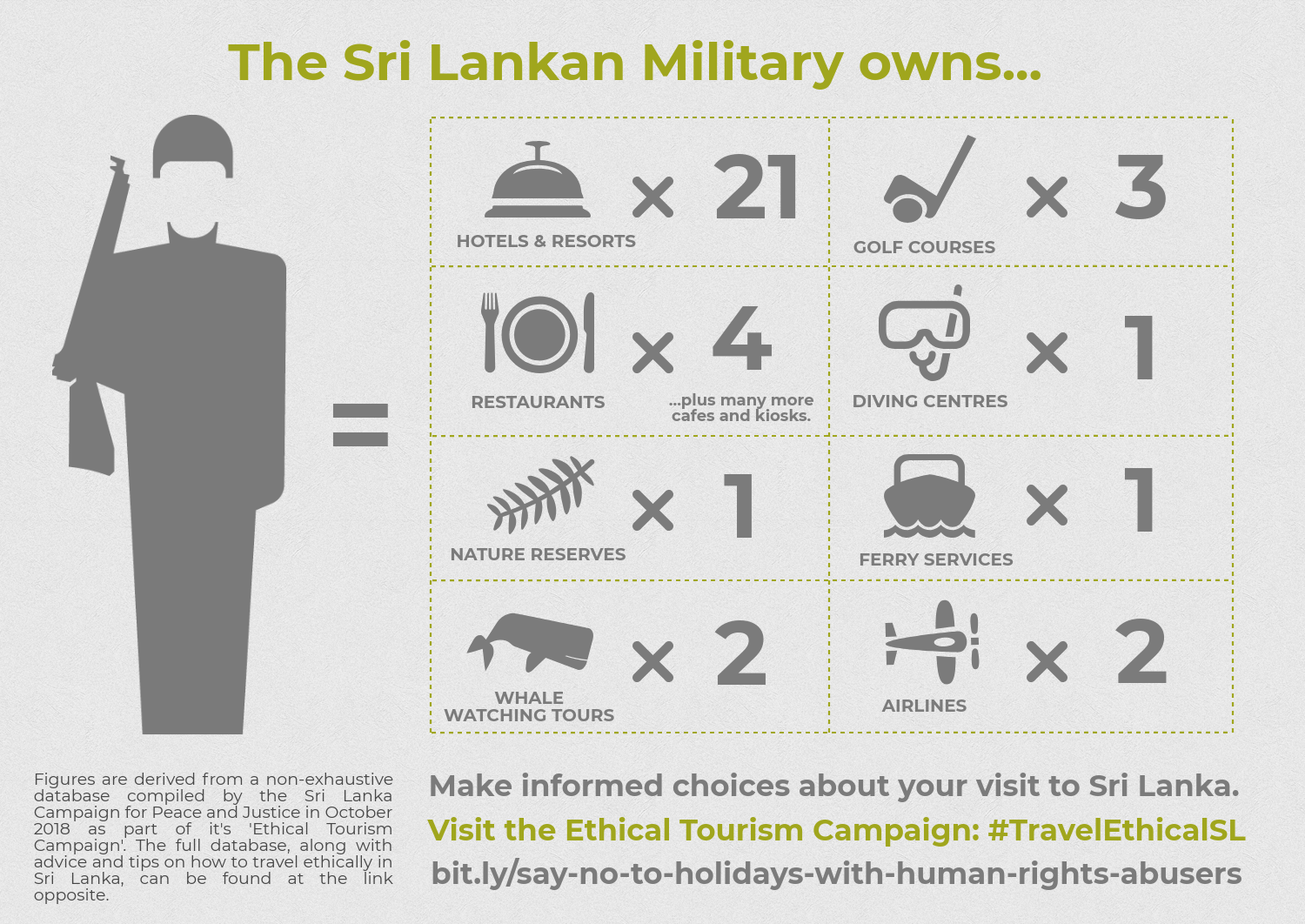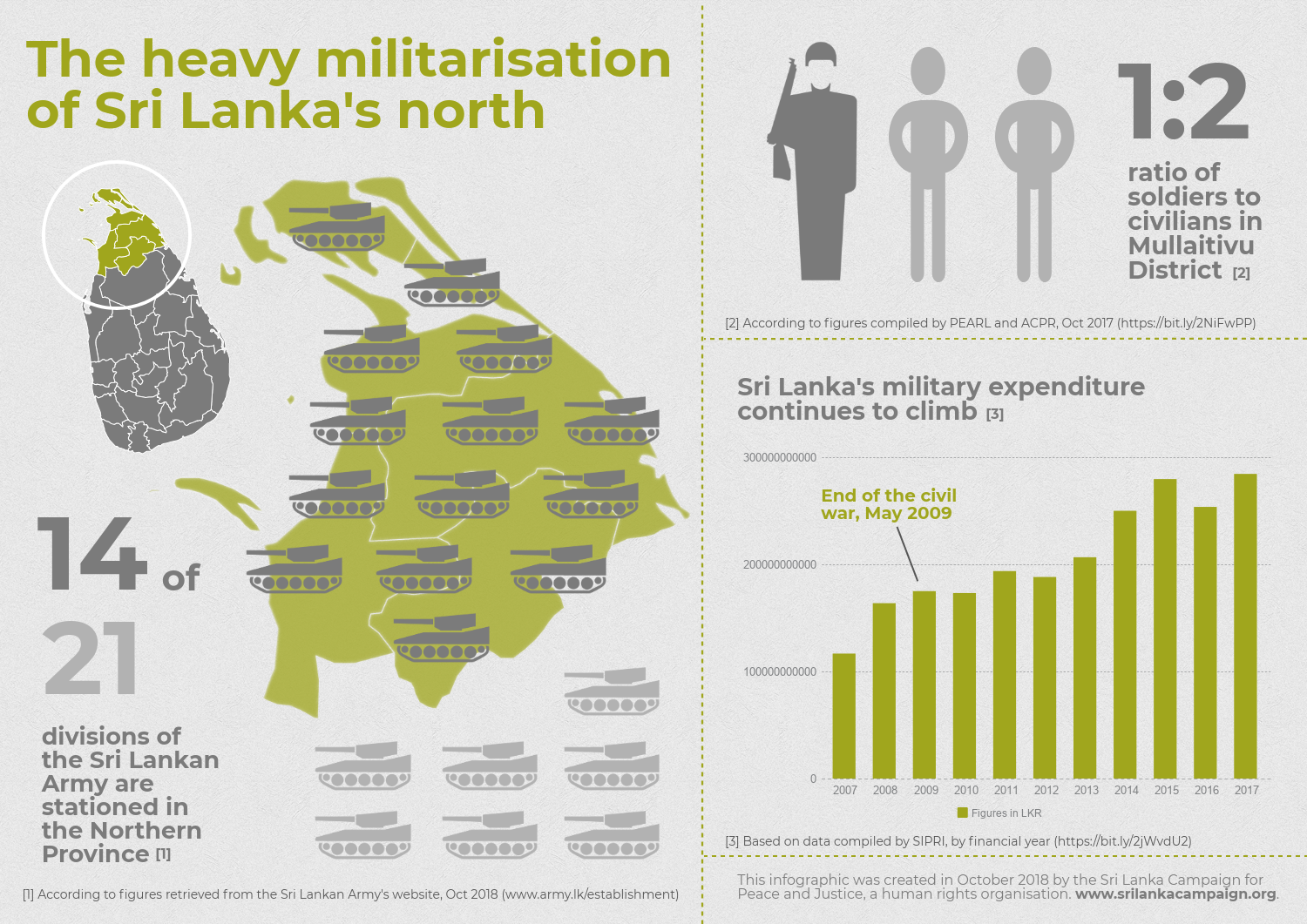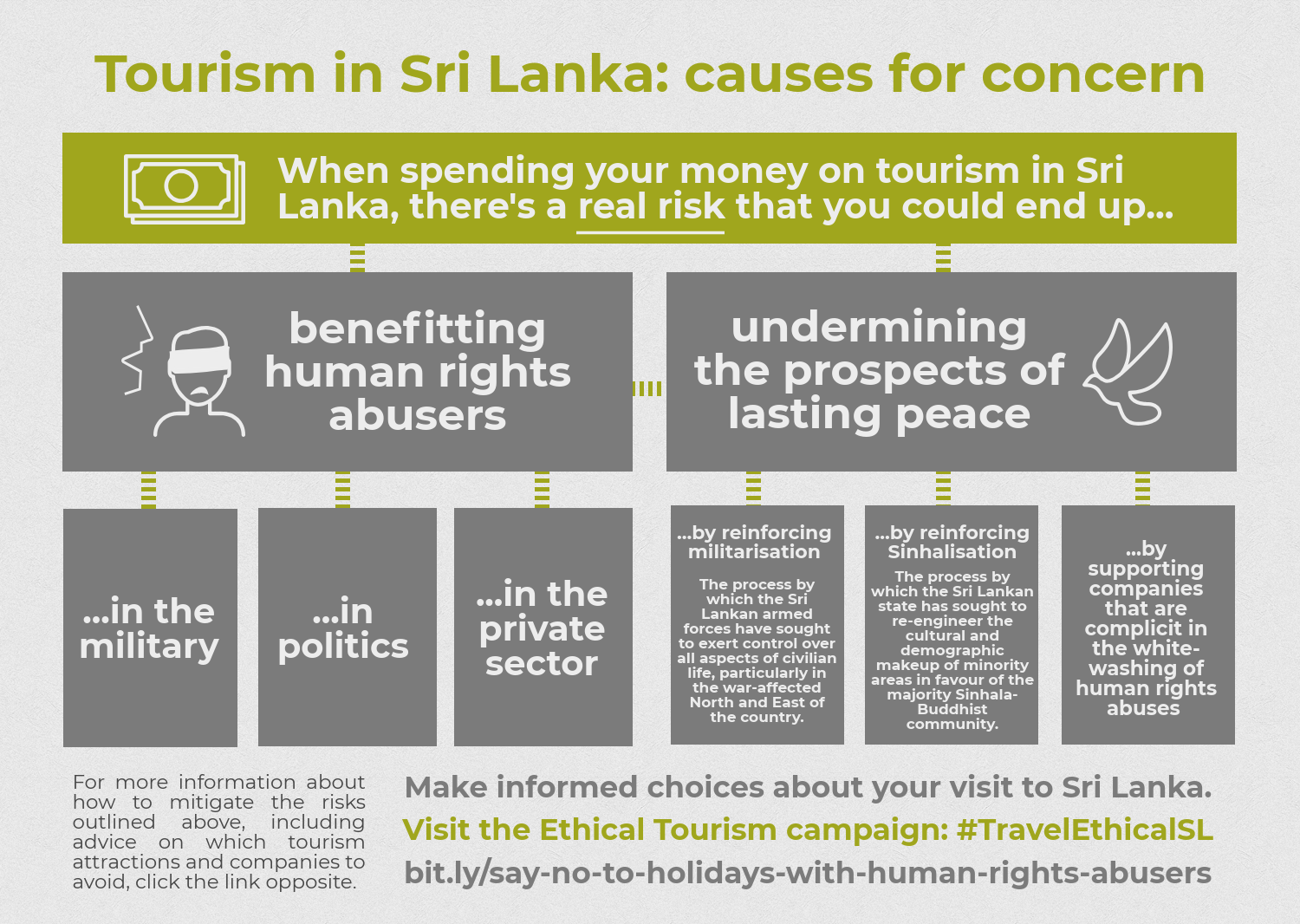
The Sri Lanka Campaign has re-launched its ethical tourism campaign for those who visit Sri Lanka and the Tamil homeland, reflecting ongoing concerns regarding militarisation and in an effort to prevent human rights abusers from benefitting from tourism to the island.
“The prospect of travelling to places like Syria and Myanmar ten years from now, and staying at hotels owned or run by individuals currently involved in appalling human rights violation, is one that would be unthinkable to most people,” said Richard Gowing, Director of the Sri Lanka Campaign for Peace and Justice. “Yet sadly, that is precisely what is happening in Sri Lanka, where today the military are involved in running dozens of hotels and restaurants – not to mention golf courses, whale-watching tours and ferry services.”
As part of the campaign, lists of military controlled business have been compiled and listed as companies that tourists are advised to avoid.
See an interactive map below.
The campaign noted that in Sri Lanka “today, the armed forces and other human rights abusers are deeply embedded in the tourism industry and poised to benefit from your spending”.
“Despite the end of the fighting, serious human rights violations – including extra-judicial killings, torture, sexual violence, abductions, arbitrary detention and land-grabbing – have persisted,” it added.

“The continued presence of military-run tourism ventures in Sri Lanka is symptomatic of the wider grip that the military maintains over civilian life on the island, particularly across the war-affected north and east,” continued Gowing. “We believe it is the duty of the ethical traveller to ensure that members of the armed forces are not supported through their holiday spending, and that the harmful process of militarisation - which breeds resentment and undermines Sri Lanka’s chances of lasting peace – is not reinforced.”
In addition, the campaign has also highlighted ethical alternatives to use when travelling to Sri Lanka and the North-East.

“The purpose of our campaign is not to condemn all tourism to Sri Lanka as ‘unethical’,” added Gowing. “It is to highlight the specific risks for travellers so that they can make informed choices, and to explain how tourists can play a positive role by engaging with the reality and supporting ordinary people.”
See more on the Sri Lanka Campaign website here.
